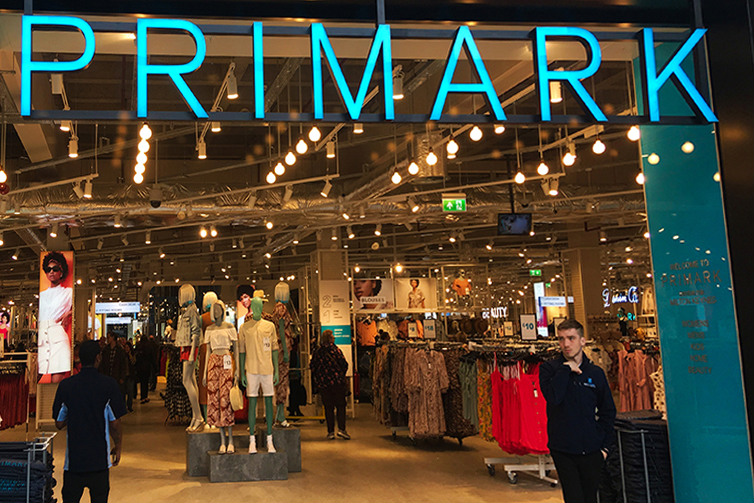
British fast-fashion retailer Primark says it has no plans to sell its clothes online despite warning that lockdown store closures could cost it more than £1 billion in lost sales.
Some 305 of Primark’s 389 global stores are shut – including all 190 UK outlets – but unlike rivals it has no online arm to fall back on.
Customers have said they would welcome the retailer setting up an online shop.
But Primark, which saw a 30% sales fall to £2 billion in the 16 weeks to 2 January, says the cost of going online would mean increase in prices.
It contrasts with online only fashion retailers such as Asos and Boohoo, whose sales rose by around 40% in the last four months of 2020.
In mid-January, consumers called on Primark to embrace e-commerce on social media stating, “online sales are rising during the pandemic and the retailer is missing out on sales.”
Since March last year, non-essential shops in the UK and overseas have faced strict curbs and prolonged closures and all are currently shut in England.
In a statement, Primark said that if all of its stores stayed closed until 27 February 2021, it expected to miss out on £1.05 billion of sales – up from a previous estimate of £650 million.
The retailer said it would partially mitigate this by cutting its costs, but did not say if that would mean job losses. It added that it only expected to break even in the first half of the financial year, after seeing healthy operating profits of £441 million last time around.
In the past Primark has said it won’t sell online because the cost of manning the operation and processing high volumes of returns would mean it could no longer offer low prices.
“As a fast fashion retailer they are on a low margins anyway – they have to be very competitive on price,” says Patrick O’Brien, UK retail research director at GlobalData.
He says pure online players like Asos and Boohoo could make it work because they were “geared up for it in terms of logistics”.
But Primark would be starting from scratch, and would have to integrate any new online operation with its existing store structure which would be costly.”
Despite this O’Brien says the retailer was still likely to succeed, pointing to the surge in sales it saw when its shops reopened after the first lockdown.
But Richard Lim of Retail Economics says Primark was at risk of “potentially alienating its customers” who increasingly expect to be able to shop online.
“They have very loyal customers who love the brand, but are demanding online access. The longer they are not online, the more disruptive it is. The more their customers are discovering new brands and ways to shop,” he adds.
While Primark is bracing itself to lose £1 billion in business as a result of store closures, Tesco says it added £1 billion of extra sales online during the last festive quarter. It’s been very tough for many traditional non-food retailers, big and small, who’ve been unable to make up for all the lost sales from their High Street shops.
Notifications